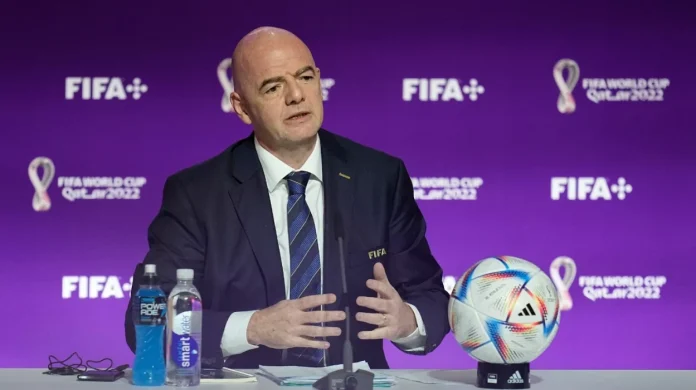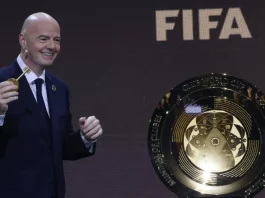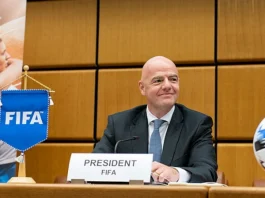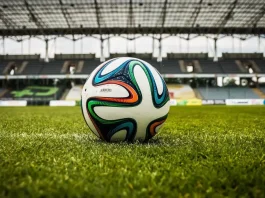FIFA’s charter portrays it as a political-neutral body safeguarding football from geopolitical disputes. President Gianni Infantino often calls the sport a realm of peace and unity. Yet, FIFA’s conduct during several 2025 tournaments reveals stark inconsistencies between its stated principles and the commercial decisions driving its global operations.
The numerous encounters between Infantino and politicians including the controversial immigration policies and the inflammatory rhetoric of the former U.S. president Donald Trump have cast doubt on FIFA selectiveness. Such gatherings usually carry with them tournament logistics or commercial alignments and in such cases indicate an unofficial flexibility to political affiliations that augur well with FIFA event planning and revenue practices. The fact that sport intersects with statecraft is a contradiction of the very neutrality which the organization attempts to maintain.
Selective application of political neutrality
The neutrality of FIFA has been adaptable when compared to its reaction concerning various geopolitical crises. In 2022, its decision to suspend Russia due to the Ukraine invasion as it would not allow it to compete was justified as a necessary measure. However, its persistent silence on the humanitarian crisis in Gaza and the political fallout of Israeli military actions stands in contrast, with no equivalent sanctions or exclusions. Such a discrepancy implies that FIFA is not politically involved based on principle, but it is based on context and convenience.
This contradiction is also highlighted by the fact that FIFA was closely associated with Gulf states. Despite continued international criticism of their practices in human rights, labor relations, and media freedom, Qatar and Saudi Arabia have both acquired the rights to host high profile FIFA events. This is indicated by FIFA seeming to be unwilling to comment on those matters, which portrays an alliance of interests; that is financial, diplomatic, and logistical interests, over and above the application of ethical standards in a consistent manner.
Financial imperatives and host nation politics
Hosting rights continue to be at the center of FIFA and the process of their assignment is highly political. The status of economies, capacity of infrastructures and diplomatic relations is increasingly more important than human rights or governance qualifications. In 2025, the preparation for the Saudi-hosted 2027 AFC Asian Cup and the expansion of FIFA’s global footprint into markets such as India and China mirror this commercial logic. Such decisions allow FIFA to enjoy huge sponsorship deals with states and infrastructure investments, but force it to be connected to political environments that can go against its social principles.
The outcome is a brand of neutrality that will bend to the forces of market access and geopolitical leverage. Through a position of presenting itself as an impartial actor and aligning itself strategically with certain governments FIFA exposes the dangers of making political doublespeak a norm in the name of sports diplomacy.
Receding commitment to social responsibility
During the previous years FIFA used face-to-the-crowd campaigns against racism and discrimination, which frequently involved the use of slogans and symbolic gestures during a tournament ceremony. Nevertheless, the 2025 Club World Cup in the United States was a clear change. Where once stood the once-famous Say No to Racism message, there is now the less specific Football Unites the World, a change advocacy groups believe was purposeful to evade tension with host government messages.
Such organizations as Human Rights Watch or the Dignity 2026 Coalition have expressed the apprehension that this repositioning is simply representative of a wider regression in FIFA in terms of its social concerns. Messaging changes were not discussed with key stakeholder organizations, and the message did not explicitly make reference to systemic injustice or anti-racist values. The movement indicates that FIFA is becoming more and more event-harmony oriented rather than advocacy-driven.
Commercial interests over inclusive messaging
This can be explained by the fact that the activism is diluting along with the increased commercial interests of world tournaments. The collaboration of FIFA with multinational corporations, some of which have a dubious reputation in the context of human rights or environmental practices, only adds more complexity to the execution of coherent social campaigns. Organizers seem to prefer slogans that are palatable to sponsors and governments as opposed to accountability-based or equity-based messages.
This trend adds to the emerging view that FIFA ethical programs are responsive and performative, which does not have the institutional strength to confront host countries or sponsors. It also destroys the ability of football to serve as a medium of marginalized voices or it encourages inclusive world conversations.
Structural weaknesses in internal governance
Credibility gaps are still rife in the internal oversight mechanisms at FIFA. The Ethics Committee, which ensures that the actions at all levels of the organization are controlled, is still a subject of criticism that it is slow to investigate incidents and apply selectivity. A number of cases with senior officials are still pending and protection of whistleblowers is seen to be insufficient. Reform proposals to boost investigative capabilities and improve transparency have fallen dead in the water in 2025 because of organizational inertia.
All these governance restrictions contribute to the weakness of FIFA to external influence and conflict of interest amongst members of the organization. Absence of meaningful responsibility is also a weakness of reform, since efforts that are proclaimed publicly have no follow-up or operational articulation. The structural darkness of FIFA has, practically speaking, become its facilitator of the same doublespeak which it purports to shun.
Emerging demands from global football stakeholders
The calls of increased democratization in the FIFA decision making process have been increased by the fans, player unions, and civil society groups. The youth player protections, fair labor standards to be used by event workers, and the inclusion of voices of women and minorities in the tournament preparation are problems that have attracted protests and open letters. In 2025, a number of players criticised the unclear interaction of FIFA with those directly impacted by its actions through their sites.
Calls are growing to FIFA to institutionalize the process of consultations whereby the wider input of non-state actors and interested communities will be taken into account. These reforms are perceived to be needed to realign FIFA governance model to inclusion and legitimacy in a world of sport that is becoming multipolar.
Football diplomacy and the limits of neutrality
The popularity of football allows FIFA to gain soft power, the effects of which are unparalleled by any other entity worldwide, yet to exercise this power conscientiously, a new concept of neutrality is necessary. The Club World Cup in the U.S. in 2025 is an excellent example of such a dilemma. FIFA is involved in a web of governance, sponsors and legal jurisdictions–all with conflicting priorities and political conditions.
These relations make absolute impartiality unworkable. Rather, FIFA will also have the difficulty to build a kind of principled neutrality, that is consistent, transparent, and grounded on clearly defined values. In the absence of that, the neutrality will mix with opportunism and lose credibility among the fans and the stakeholders.
It is not about avoiding politics, but rather about approaching political realities in a systematic and morally acceptable manner which makes the future of the organization. This kind of terrain requires a leadership that can recognize complexity without compromising on integrity.
Toward principled governance and ethical clarity
The issue of FIFA political double standards 2025 reveals the difficulty of separating sport from geopolitics in a globalized world. As political pressures mount and football’s cultural role expands, FIFA faces a critical choice: preserve its credibility through ethical reform or continue to risk reputational erosion by applying neutrality unevenly.
Calls for authentic leadership, transparency in decision-making, and inclusive governance frameworks are no longer peripheral—they are central to football’s role in global society. Whether FIFA answers that call may ultimately determine not only its institutional future but the social and diplomatic role of the sport itself in an era of deepening division and increasing global expectation.




